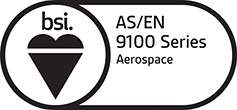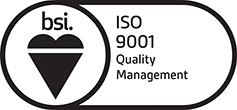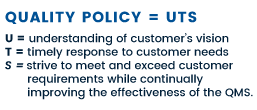What is Magnetic Particle Inspection?
Magnetic Particle Testing (MT) also referred to as Magnetic Particle Inspection (MPI) is a non-destructive testing method that can identify defects in ferromagnetic materials. This is achieved by introducing a magnetic field either directly or indirectly into the component being inspected. The process involves applying a magnetic field to the material and then sprinkling iron particles on the surface. The particles will accumulate at areas where there are defects, making them visible to the inspector. MPI is a highly effective technique for detecting surface and near-surface flaws in materials such as steel, iron, and nickel. It is widely used in industries such as aerospace, automotive, and manufacturing to ensure the quality and safety of components.
Magnetic particle inspection is a highly effective method that utilizes a magnetic field to produce accurate results. This technique is particularly useful for ferrous materials such as nickel, iron, cobalt, and certain alloys. Additionally, magnetic particle inspection is commonly employed to test a wide range of components including billets, bars, castings, forgings, fasteners, weldments, and extrusions. By utilizing this method, manufacturers can ensure the quality and integrity of their products, ultimately leading to increased customer satisfaction and trust.
Magnetic particle inspection methods
There are several methods utilized in the field of magnetic inspection, including dry particle and wet suspension techniques, which involve the application of both continuous and residual magnetization. Depending on the specific application, ferrous iron particles are applied to the part in either a dry or wet suspension. Particles tend to accumulate in areas where defects are present, rendering them visible to the inspector. This phenomenon occurs due to the attraction of particles to areas of lower energy, which are often found in the vicinity of defects. This indication is then analyzed to determine the characteristics and cause of the defect. The results enable our Technical Specialists to identify the location, type and severity of any discontinuities on the surface or sub-surface of the part. This NDT process is crucial in ensuring the quality and safety of products, as it allows for the detection and correction of defects before they can cause harm or compromise the integrity of the product.
When to use wet magnetic particle inspection process
The wet method involves suspending the iron particles in a liquid, such as oil or water, and applying it to the product. This method is ideal for detecting smaller defects and is often used in applications where the surface of the material is rough or irregular.
When to use dry magnetic particle inspection process
The dry method involves applying the iron particles in a dry powder form directly onto the product. This method is more suitable for detecting larger defects and is commonly used in applications where the surface of the material is smooth and uniform.
Among NDT methods, magnetic particle inspection stands out as one of the most cost-effective and efficient options available, offering a quick turnaround time for results. Overall, magnetic particle inspection is a highly effective and efficient technique for detecting defects in ferromagnetic materials. By utilizing either the wet or dry method, this technique can be tailored to meet the specific needs of any given application.
The Unitek benefit
Our team of highly trained and experienced inspectors can determine the origin and cause of surface and near-surface discontinuities by carefully examining their nature, location, and extent. This allows us to provide accurate and detailed reports on the condition of your materials or structures. Trust us to deliver professional and reliable NDT inspection support services that will help you verify your product conformity.
Please contact us to obtain further details regarding our magnetic particle inspection support services. The Unitek team of experts is readily available to assist you with any inquiries you may have.




